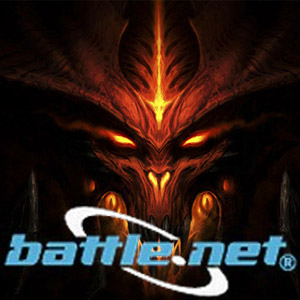 NEWS
NEWS
 NEWS
NEWS
 NEWS
NEWS
![]() Cheating is a prevalent problem across a multitude of online video games—and it’s well known in Blizzard’s previous titles in the Diablo series especially Diablo II. In an attempt to head off potential cheaters in their new Diablo III product, Blizzard is seeking the essential “death penalty” to players caught cheating with a permanent ban from the game.
Cheating is a prevalent problem across a multitude of online video games—and it’s well known in Blizzard’s previous titles in the Diablo series especially Diablo II. In an attempt to head off potential cheaters in their new Diablo III product, Blizzard is seeking the essential “death penalty” to players caught cheating with a permanent ban from the game.
Ploygon blog from The Virge brought to our attention that players caught cheating with hacks, bots, or modifications to the game client itself will find themselves locked out of Diablo III, Blizzard announced:
“Blizzard Entertainment has always taken cheating in any form in Blizzard games very seriously, and that’s no different for Diablo® III,” the video game giant wrote in their harsh warning. “If a Diablo III player is found to be cheating or using hacks, bots, or modifications in any form, then as outlined in the Diablo III end user license agreement, that player can be permanently banned from the game. This means that the player will be permanently unable to log in to Battle.net® to play Diablo III with his or her account.”
With the penalty placed on the line, the Blizzard announcement went on to describe what will be viewed as violating the terms of service and would in turn trigger the above punishment.
“Playing Diablo III legitimately means playing with an unaltered game client. Doing otherwise violates our policies for Battle.net and Diablo III, and it goes against the spirit of fair play that all of our games are based on. We strongly recommend that you avoid using any hacks, cheats, bots, or exploits. Suspensions and bans of players that have used or start using cheats and hacks will begin in the near future.”
No doubt, this move comes as more attention is being placed on the real-money transfer (RMT) auction house that Blizzard will be experimenting with as part of the online video game Diablo III. By and large, the commodity auction house for Diablo II drew a huge number of players who traded in in-game gold and items but also spilled out onto sites such as eBay and Craigslist where people traded in virtual items for real money in a sort of black market (since this trade violated Blizzard’s Terms of Service.) All this occurred in spite of well known hacking and rife item duplication possible in Diablo II Battle.net accounts.
As a result, Blizzard has aimed for a controversial always-onine DRM scheme that makes the Diablo franchise which is historically a single player game into a forced-multiplayer game.
This might be a turn for the worse in the gaming industry where players can lose access to what would capably be a single-player game by either losing their Internet access or losing access to their account on Battle.net via a ban. This problem has also emerged during the 2011 month-long hack aftermath maintenance of the PlayStation Network when many games became inaccessible to players who otherwise could have played them single player.
Hacked account concerns
Blizzard has been pushing the use of the Battle.net Authenticator to prevent hacked accounts; but the permanent ban effect also brings to light a potential customer service problem that might arise from users who have their accounts hijacked by an attacker or malware. We’ve already seen a rash of Diablo III players concerned about their accounts due to hacking rumors and this potential exploitation.
Since the attacker will then potentially use the account as a vehicle for cheating—and not just empting it for its commodities—this means that a users who has their account hacked could lose their account permanently unless Blizzard is interested in implementing an investigative office to tell the difference between those hacked and those who are cheaters.
THANK YOU